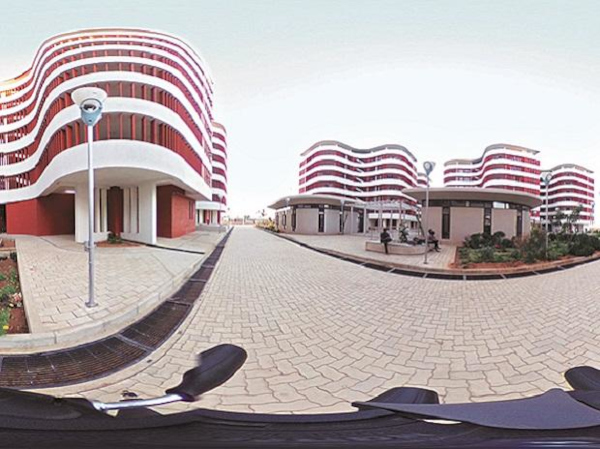MUMBAI: The Indian Institute of Technology-Hyderabad has developed nano fibre-based, controlled-release oral tablets of amphotericin B (AmB) to treat post-Covid fungal infections. Researchers have kept the technology free of intellectual property rights and are looking for pharmaceutical partners who can take up mass-scale production. Currently, AmB is an injectible drug.
In 2019, faculty members Saptarshi Majumdar and Chandra Shekhar Sharma from the department of chemical engineering had released a study that oral nanofibrous AmB can be effective to treat kala azar, a parasitic ailment that can cause fever, weight loss and swelling of the liver or the spleen.
This was a first-ever attempt to fabricate nano fibrous oral tablets of amphotericin B for the potential cure of kala azar or leishmaniasis.
Two years later, the researchers say they are confident the technology can be transferred to suitable pharma partners for large-scale production. At present, kala azar treatment is being used to treat black and other fungi and its availability and affordability make it necessary to allow emergency and immediate trial of this oral drug.
“AmB has poor aqueous solubility and forms aggregates in the system, which stresses renal filtration and thus causes nephrotoxicity (toxic for kidneys),” said Majumdar.
Stressing on the need for pharma companies to come forward, Sharma said, “The main idea behind our research is to find a solution to serve society.
The technology developed is made free of IP, so that it can be mass-produced and is affordable and available to the public at large. We can be reached via our public and corporate relations.”
In the present research funded by DST-Nanomission, a team led by Majumdar and Sharma along with their PhD scholars Mrunalini Gaydhane and Anindita Laha intended to deliver AmB orally at a very slow rate, albeit within therapeutic window.
Source: ToI
You may also like
-
New Heat-Based Approach To Cancer Treatment Can Reduce Chemotherapy Doses
-
Scientists Take A Major Step Towards Unification Of Classical & Quantum Gravity
-
India Graphene Engineering and Innovation Centre (IGEIC) Under the Vision of Viksit Bharat@2047 Launched
-
New High-Performance Gas Sensor can Monitor Low Level Nitrogen Oxides Pollution
-
Antidepressant Drug can be Repurposed for Treating Breast Cancer
